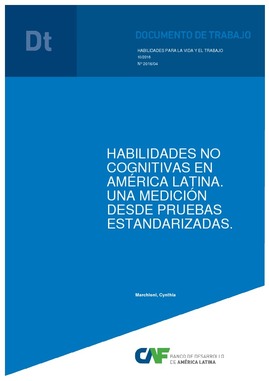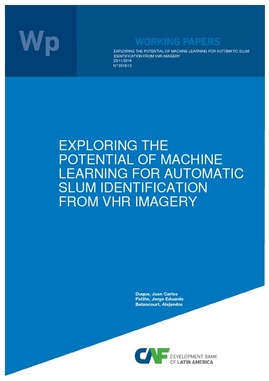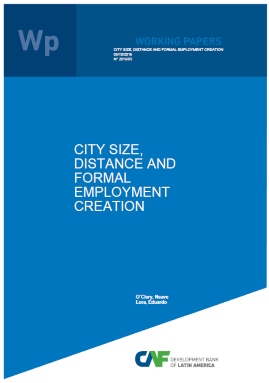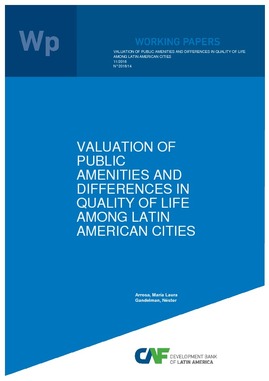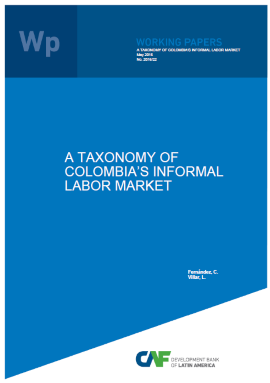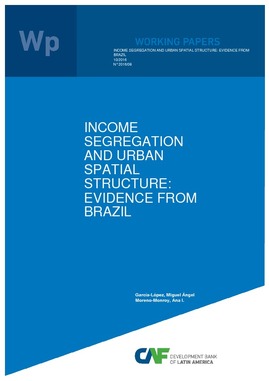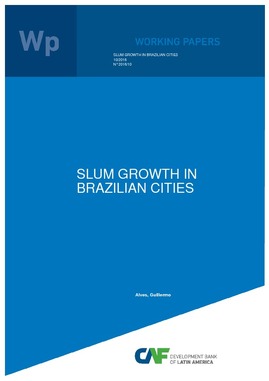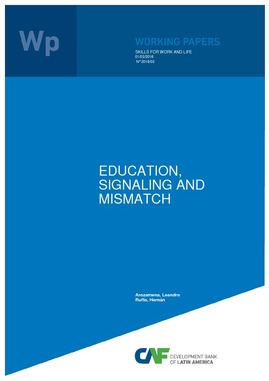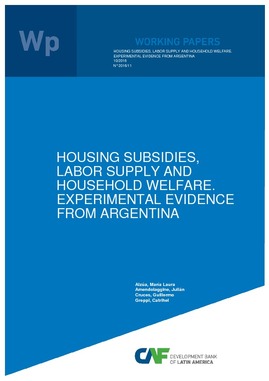Buscar
Mostrando ítems 11-20 de 22
Habilidades no cognitivas en América Latina. Una medición desde pruebas estandarizadas.
(CAF, 2016-08-31)
Medir habilidades es complejo, pues son inobservables. Este problema es particularmente importante en la medición de habilidades no cognitivas, donde usualmente se emplean métodos basados en el auto-reporte. Como alternativa ...
Exploring the Potential of Machine Learning for Automatic Slum Identification from VHE Imagery
(CAF, 2016-11-23)
Slum identification in urban settlements is a crucial step in the process of formulation of propoor policies. However, the use of conventional methods for slums detection such as field surveys may result time consuming and ...
City Size, Distance and Formal Employment Creation
(CAF, 2016-10-09)
Cities thrive through the diversity of their occupants because the availability of complementary skills enables firms in the formal sector to grow, delivering increasingly sophisticated products and services. The appearance ...
Valuation of Public Amenities and Differences in Quality of Life among Latin American Cities
(CAF, 2016-11)
We use a life satisfaction approach for the valuation of public goods and amenities in Latin American cities. We apply a homogenous database of seventeen cities gathered by the Development Bank of Latin America CAF. Using ...
A Taxonomy of Colombia’s Informal Labor Market
(2016)
A taxonomy of the informal labor market is extremely important to understand and handle informality, particularly in a country as Colombia where this phenomenon is large and heterogeneous. As we will argue in this paper, ...
What is the Role of Urban Growth on Inequality, and Segregation? The Case of Urban Argentina´s Urban Agglomerations
(CAF, 2016-11)
We analyze the relationship between urban sprawl and changing patterns of inequality and segregation in metropolitan areas of Argentina. The existing literature has endeavored to study the determinants of the expansion of ...
Income Segregation and Urban Spatial Structure: Evidence from Brazil
(CAF, 2016-08-05)
We estimate the effect of urban spatial structure on income segregation in Brazilian cities between 2000 and 2010. Our results show that, first, local density conditions increase income segregation: the effect is higher ...
Slum Growth in Brazilian Cities
(CAF, 2016-10-10)
I study slum growth in contemporary urbanization processes by estimating a spatial equilibrium model with houses with and without basic water and sanitation services in Brazilian cities between 1991 and 2010. Slum growth ...
Education, Signaling and Mismatch
(CAF, 2016-06)
We assess the importance education as a signal of workers skills and the e¤ects of poor signaling quality on labor market outcomes. We do so by merging a frictional labor market model with a signaling setup where there is ...
Housing Subsidies, Labor Supply and Household Welfare. Experimental Evidence from Argentina
(CAF, 2016-10)
We study the impact of a social housing policy program implemented in Argentina, exploiting the random assignment rule to identify the policy's causal effect on labor market and other socio-economic outcomes. In particular, ...


